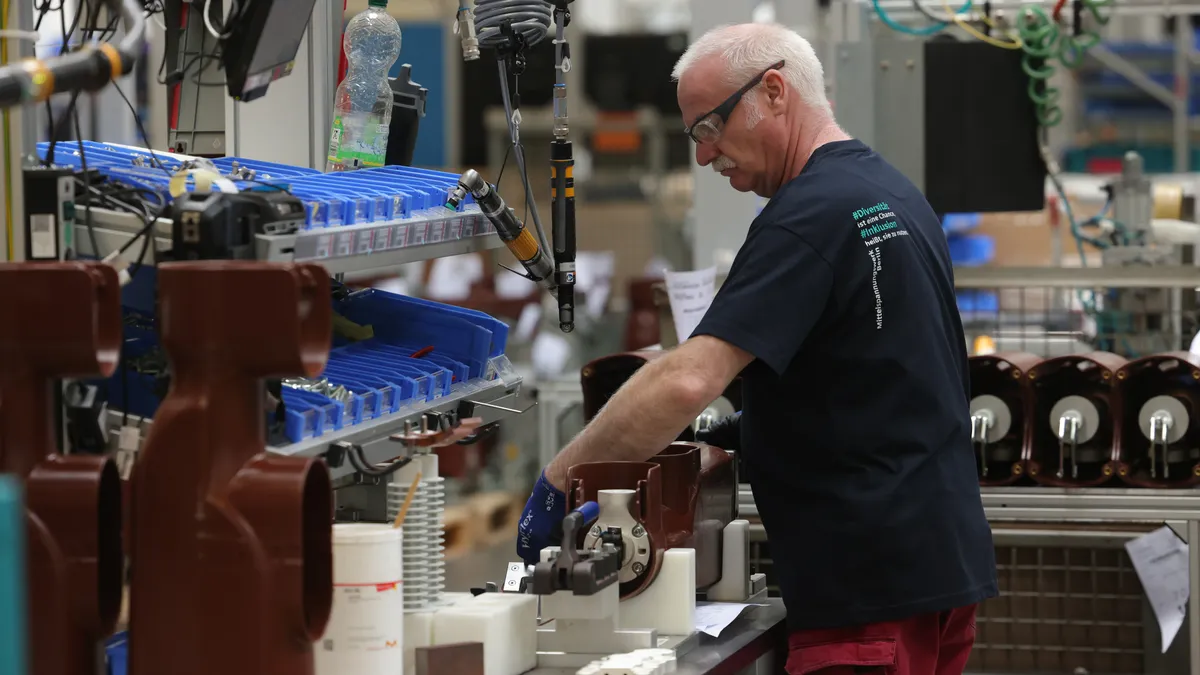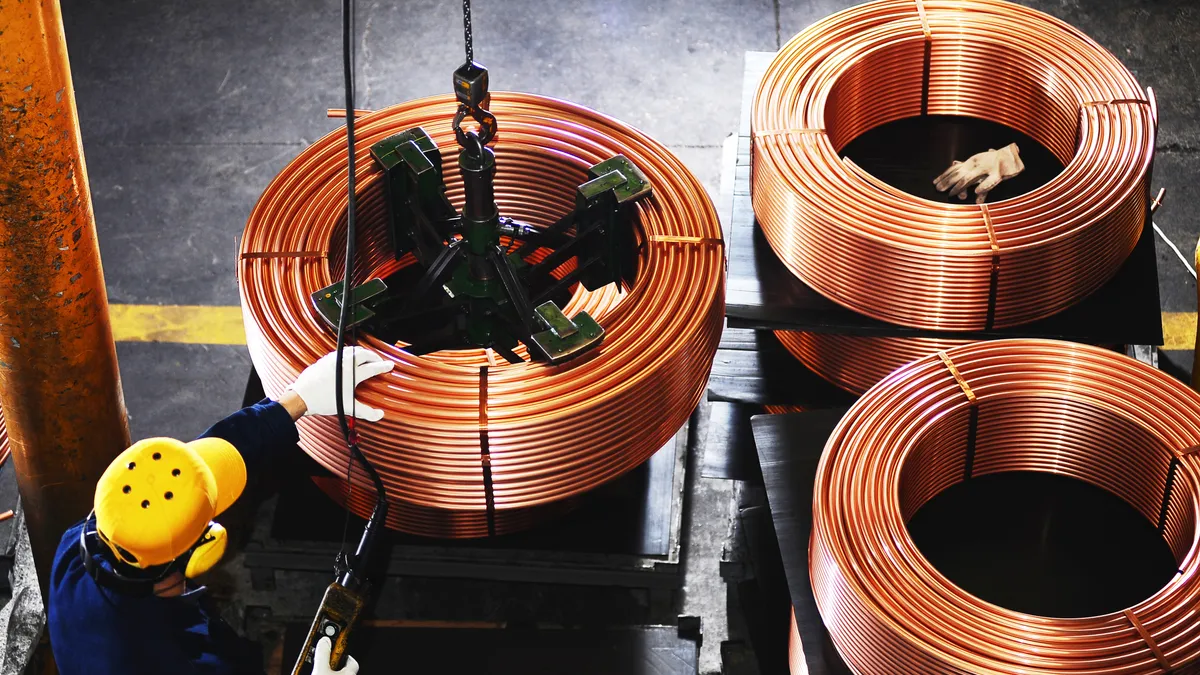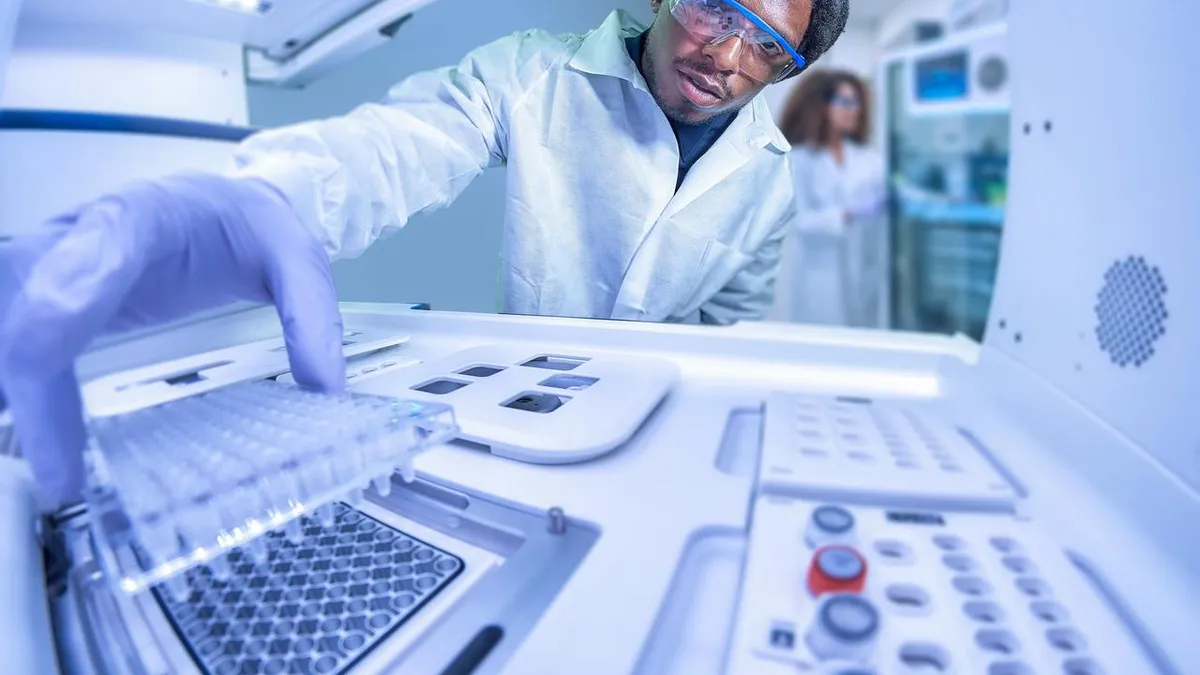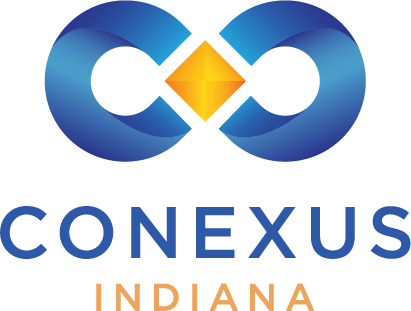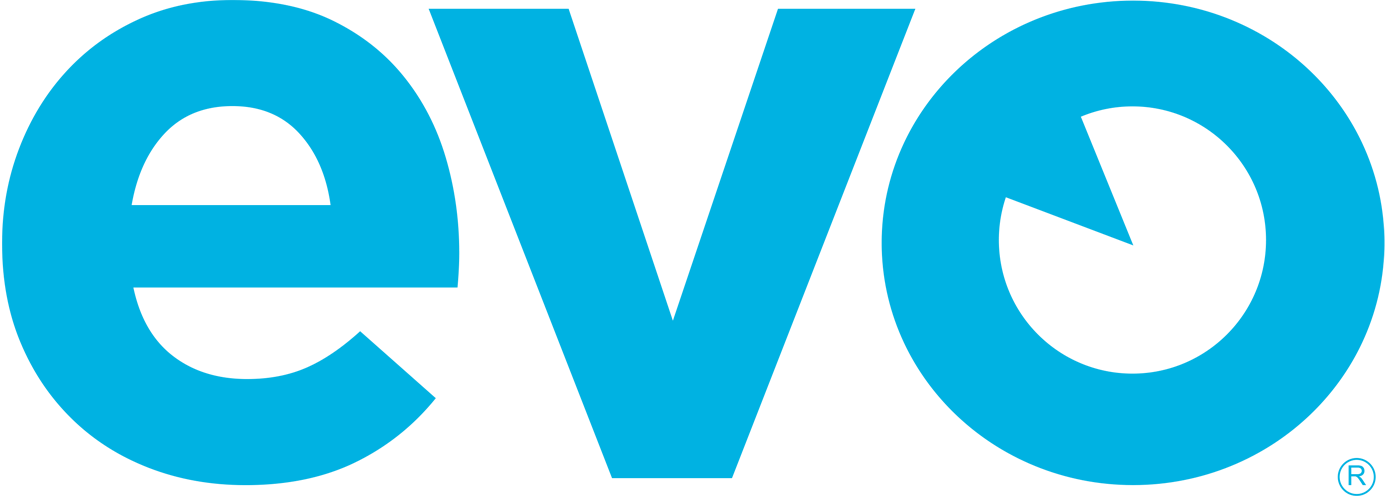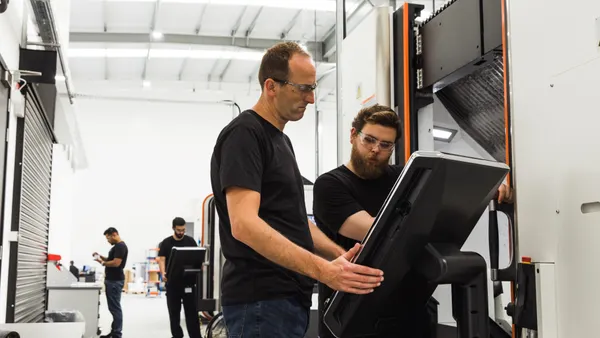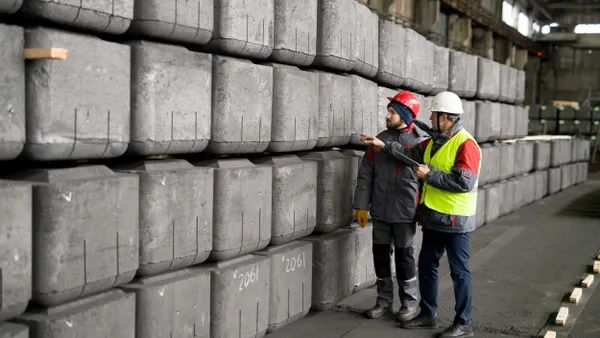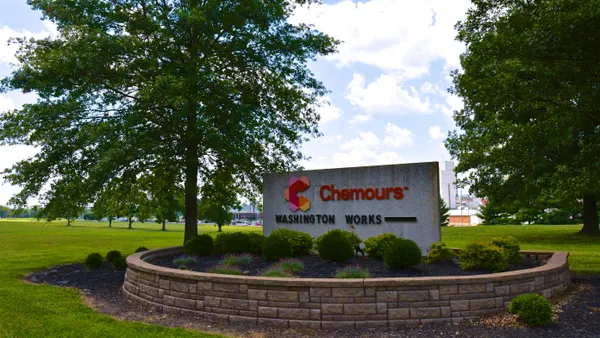Dive Brief:
- Germany-based technology company Siemens plans to build a $150 million high-tech manufacturing plant in Fort Worth, Texas, according to a Nov. 3 press release.
- The plant will produce electrical equipment to meet growing demand for data centers in the U.S., which is being driven by the adoption of generative AI, Siemens President and CEO Roland Busch said in a Nov. 3 media call.
- Construction is slated to break ground in 2024 with the aim of being fully operational by Q1 2025, creating 700 new jobs, according to the press release.
Dive Insight:
The Fort Worth plant is part of a $510 million investment in U.S. manufacturing Siemens is undertaking to meet projected demand.
Earlier this year, Siemens announced a $220 million rail manufacturing facility in Lexington, North Carolina, which is currently being built, Barbara Humpton, president and CEO of Siemens USA, said on the call.
The company is also expanding a smart infrastructure manufacturing plant in Grand Prairie, Texas, and replacing an existing facility in Pomona, California. In total, these projects will create 1,700 jobs at Siemens.
Together, the new Fort Worth facility and the Grand Prairie and Pomona plants extensions will meet elevated demand for the electrification of critical infrastructure, in areas such as data centers, battery plants, semiconductor facilities and EV charging, Barry Powell, business head of Siemens Electrical Products, North America, said on the call.
Growing investment will also have ripple effects for Siemens' manufacturing supply chain. The company has more than 100 suppliers in the Dallas-Fort Worth metro area, and several hundred more throughout Texas.
“The facility will be constructed and operated with Siemens advanced manufacturing tools, featuring cutting edge technology like digital twins and high tech automation,” Powell said in the call. “Big picture, there's never been a better time to invest in infrastructure and to support the backbone of America's economy.”
In line with the company’s digitization efforts, Siemens and existing partner Microsoft launched Siemens Industrial Copilot, an AI-powered jointly developed assistant aimed at improving human-machine collaboration in manufacturing.
“The common goal with Microsoft is to bring generative AI to all industries,” Busch said in the call, later adding: “Engineers are much much faster in programming robots or manufacturing lines. They can focus on more creative tasks.”
Siemens' isn’t only working toward advancing it’s U.S. strategy. In June, the technology company said it’s pledging $2 billion to expand and build new high-tech factories, innovation labs and education centers as well as its production network in Asia and Europe.



